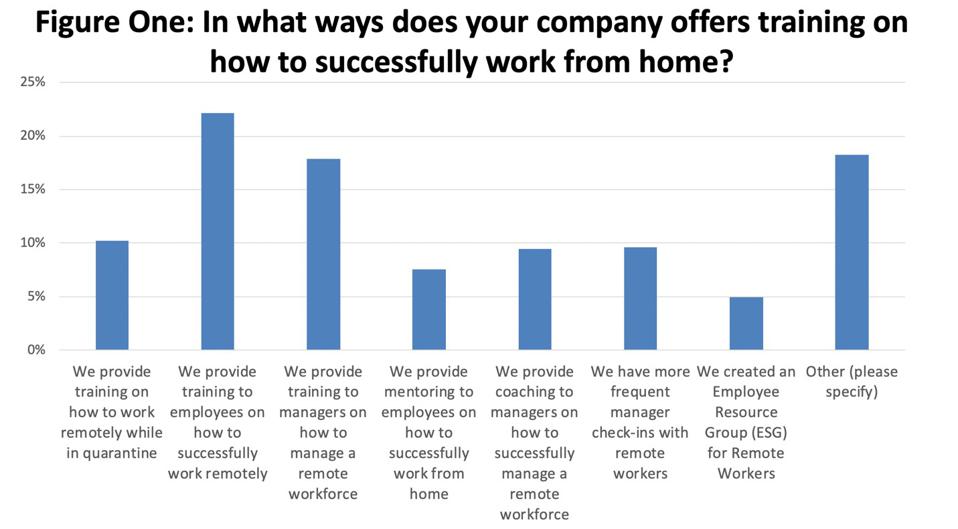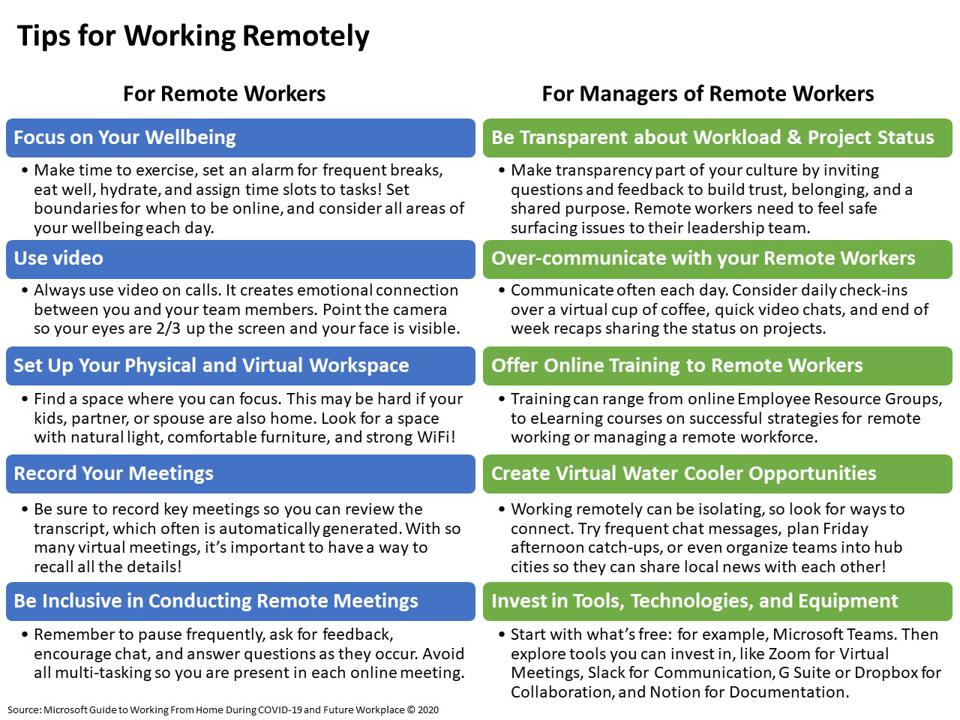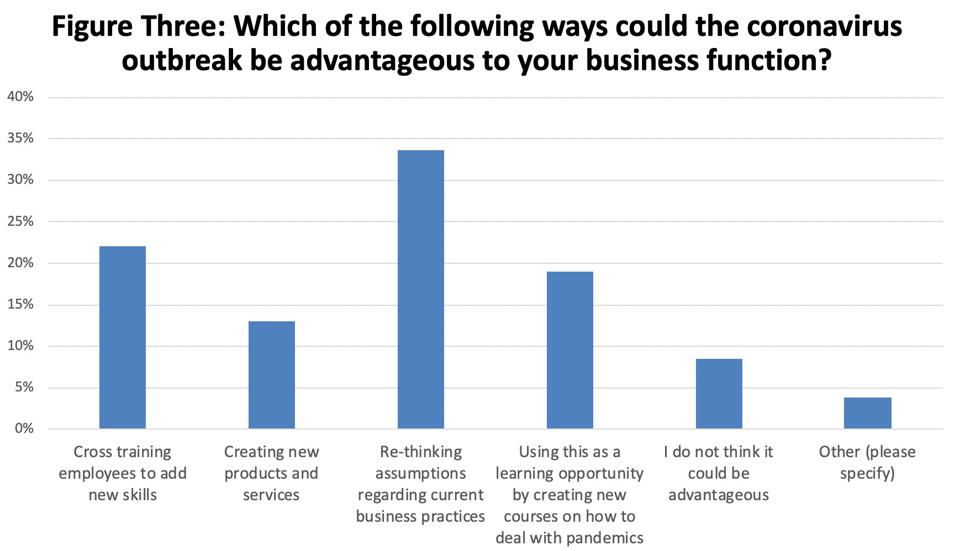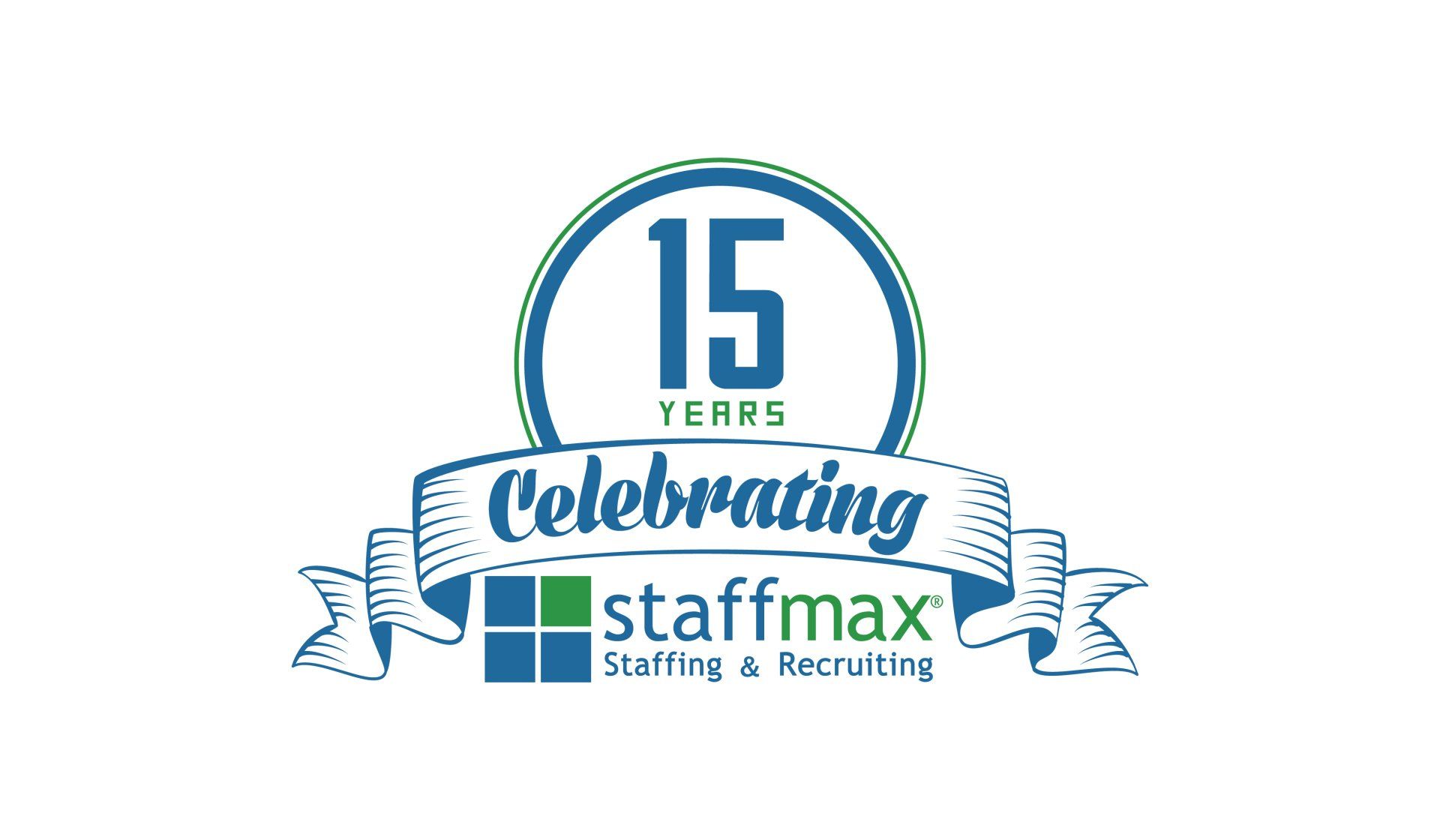The Impact Of The Coronavirus On HR And The New Normal Of Work
By Jeanne Meister via Forbes
Published March 31, 2020

For the past decade I have been writing and speaking about the disruptions in the way we work, learn and communicate. In my article, Humans, Gigs and Robots Are The New Blended Workforce, I saw an increase in full time workers working side by side with gig workers and bots or digital assistants. I went on to say: the pace of change has never been this fast, yet it will never be this slow again!
What I did not envision is we would be working exclusively from our homes while juggling home schooling and trying to figure out how to conduct three Zoom sessions at the same time: one for our own meeting, one for our spouse or partner’s meeting, and one for our child learning at home!
The Covid-19 coronavirus is becoming the accelerator for one of the greatest workplace transformations of our lifetime. How we work, exercise, shop, learn, communicate, and of course, where we work, will be changed forever!
The term VUCA (volatile, uncertain, complex and ambiguous) first appeared in the media in 1987 by the Army War College. It has taken just a few weeks for the Covid-19 coronavirus to shut down most restaurants, bars, shops, and gyms, as well as mandate or encourage 88% of workers to work from home, regardless of whether or not they are showing symptoms of coronavirus (according to Gartner), trigger hiring freezes, and, as of last week, a record of 3.3 million Americans have applied for unemployment benefits.
But the larger question is: how will this massive transformation impact the workplace, you, your team, and your organization? Future Workplace’s recent survey, entitled The Impact of the Coronavirus in the Workplace, was conducted among 350 HR leaders in the USA to explore this question. I will share some insights on how this new normal of work is evolving within organizations.
Here are our top three findings and my thoughts on the implications of how the Covid-19 coronavirus will accelerate many future of work initiatives for the rest of 2020.
1) Ramp up Training and Investment in Remote Working
Across the globe, companies are dealing with the Covid-19 coronavirus pandemic by mandating or encouraging employees work from home. As the coronavirus spreads, working from home is the new normal for workers. We are hearing comments like: “It’s the first day of both working from home and home schooling... I never signed up to be a teacher and now I believe teachers should be paid like CEOs!”
What are companies doing to prepare for one of the largest work from home experiments ever? Our research examined the various ways companies are dealing with remote working and one way is training. Our Future Workplace survey, The Impact of the Coronavirus in the Workplace, asked, “In what ways does your company offer training on how to successfully work from home?”
The responses ranged from offering both worker training and manager training, to mentoring, coaching, and even launching Employee Resource Groups targeted to remote workers and their families. See Figure 1:
Microsoft is going one step further. They created a Guide to Working From Home During COVID-19. This guide was shared with the Microsoft global workforce and a version was made available to customers as an editable document to use with their own organizations. The link to the customizable version is here: http://www.aka.ms/WFHguide-Customer
Rachel Russell, one of the architects of this document and the Flexible Work Lead at Microsoft says, “We designed the document to support our employees working from home during this outbreak, some for the first time and many with others at home as well. Our guidance ranges from setting up your physical and virtual workspace to managing your time and wellbeing, as well as specific guidance for managers. Everyone’s experience is different, and we continue to offer learning resources and community spaces, like Yammer groups, where employees can ask questions, share anecdotes, and brainstorm ideas for staying healthy, engaged, and productive.”
The Guide to Working From Home balances the mechanics of working from home with the emotional implications of managing it all: work, home, children, and importantly, your own self-care.
Future Workplace summarized the list of successful strategies for remote working following our recent Future Workplace Virtual Summit, and interviewing both Rachel Russell and Stacy Elliot, Senior Director of Communications at Microsoft, a pioneer in remote working for the last 17 years.
2) The Future of Work Is the Future of Worker Wellbeing
My Forbes column, Top Ten HR Trends That Matter Most in the 2020 Workplace, details how companies that focus on the future of work are consumed by the impending disruption of jobs, automation, and changing workforce demographics. All of these are important, but we also need to make worker wellbeing a priority!
Today more than ever, the future of work is the future of worker wellbeing. With the growth of the digital economy, our ‘always on’ way of working, the stresses in managing work-life integration, and now dealing with the coronavirus, assisting workers with their wellbeing has never been more important.
As Cecilia Tse, Wellbeing Strategy Leader, PwC says, “We are committed to helping build our people’s wellbeing and we define this to include their physical, emotional, mental, and spiritual well-being. But we are going beyond viewing wellbeing as a perk, we are being prescriptive to provide our people guidance and suggestions for habits they can consider forming in each of these areas on our PwC Be well, work well Habit Bank.”
This focus on worker wellbeing is especially important, as workers experience anxiety in dealing with the coronavirus. Our Future Workplace survey asked the question, How is your organization dealing with increased anxiety during the coronavirus pandemic? Our list of suggestions are outlined below in Figure 2.
3) The Coronavirus Can be an Opportunity to Re-define Your Business
The coronavirus pandemic is fundamentally shifting how we live and do business and will accelerate the Fourth Industrial Revolution, fueled by smart technologies such as Artificial Intelligence and mobile supercomputing. The Future Workplace Survey asked HR leaders, How could the Coronavirus be advantageous to your business? Figure 3 shows the range of responses where some HR leaders saw the coronavirus as an opportunity.
Many survey respondents commented on how the coronavirus could be an opportunity to re-think assumptions on their products, services and business model as well as cross training and creating new products to be better prepared for the next pandemic.
As I toward 2021, I see the coronavirus as an accelerator for defining the role of the corporation, remote working, re-skilling, skills based hiring, and the transformation of corporate learning.
CEOs Will Be Bold in Protecting and Investing in Their People
On August, 19, 2019 the Business Roundtable released a statement signed by 181 CEOs acknowledging all of a corporation’s stakeholders- workers, communities, partners- were as valuable as their investor shareholders. This statement now looks to be prescient. In the past few weeks, there have been numerous examples of corporations proving they meant what they acknowledged back in August, 2019.
- Microsoft announced that they will keep paying the hourly workers who support their campus during this period of reduced service needs.
- Starbucks, identifying the anxiety of this crisis, has extended its mental health benefits and extended therapy sessions to all U.S. based employees and their eligible family members starting April 6th, 2020.
- StopTheSpread.org, the blog on Medium authored by Ken Chenault, former CEO of American Express, and Rachel Romer Carlson, CEO and co-Founder of Guild Education, asks CEOs to stand together to support coronavirus recovery by funding national healthcare needs such as ventilators, respirators and hospital supplies.
There Will Be a Surge in Remote Working after the Coronavirus
In 2017, FlexJobs and Global Workplace Analytics estimated the number of people working remotely increased 159% between 2005 and 2017, with a 44% rate of growth in the last five years of that span.
That was only the beginning. Remote work is here to stay! The coronavirus is making companies, employees and their managers more comfortable with working from home. From now on, we will question taking that flight to see a client if we can communicate on a new project using Zoom.
Face time will no longer be the measure of worker productivity. Instead we will finally focus on results! With the benefits of tapping into a geographically and ethnically diverse talent pool, managers will increasingly explore how to make remote working part of their culture.
Skills-based Hiring Will Move from The New Normal to The Normal
More companies will move from hiring based on degree pedigree to hiring based on skills and more apprenticeship jobs will surge.
I spoke with Ravi Kumar, President of Infosys Ltd, on how the coronavirus will impact businesses. Ravi wrote his point of view in an inspirational LinkedIn article, Thinking Out Loud, on the confluence of opposites born in unprecedented times, such as an increased need for collaboration while we work remotely or the need to reap benefits of global interconnectedness along with local resilience.
Organizations, even as they deal with the challenges of the here and now, are putting into place plans for their post-COVID recovery. Transforming their talent models and digitizing their talent value chains will be a big focus area.
Kumar predicts a surge in skills-based hiring as more companies outsource routine tasks to machines and humans focus on uniquely human skills of creativity and critical thinking. Kumar says, “I see a future where machines will handle problem solving and humans will focus on problem finding.” That vision has committed Infosys to be a leader in the skills-based hiring movement, where the company focuses on recruiting candidates with the skills and capabilities they need rather than on their degree pedigree. Infosys partners with various community colleges in the country to hire for the right skills. In anticipation of the large scale digitization of workplaces, Infosys is stepping up its effort accelerating this with the recently launched Digital Apprentice program for community college students to learn-earn-work in order to land digital backbone jobs.
Learning Will Be Radically Transformed
This new normal of working will drive new ways to learn online. Research and Markets has forecast the e-learning market to triple by 2025 to reach $325 billion.
That was before the coronavirus. This estimate will only increase as companies have no choice but to launch a radical transformation of corporate learning.
We already saw this happening with:
- Walmart is partnering with Strivr to use Virtual Reality to prepare Walmart workers for Black Friday in store shopping;
- Best Western Hotels is partnering with Mursion to use virtual reality to train front desk clerks in problem solving skills;
- Home Depot built a mobile app to train new hires while they are on the job, sharing product information to reduce the need for face to face training.
All of these experiments will be accelerated as business leaders disrupt their old practices which relied heavily on face to face learning and pivot to developing proof of concepts for learning on-the-job using the latest consumer technologies.
Chris Pirie, former CLO of Microsoft and lead faculty for online course Radical Transformation of Learning believes business leaders must find new ways to create engaging experiences which are experiential and fun. That means incorporating more gamification, virtual reality, and augmented reality for corporate learning.
Organizations will Double Down on Re-Skilling Workers
While some organizations like Amazon, SAP, Walmart, AT&T, PwC and Guardian Life Insurance have already announced plans to re-skill large segments of their workforce, the challenge for more companies will be to go beyond designing one-off training programs. This challenge will be much bigger than any one program. Instead, companies will create an ecosystem devoted to creating an AI powered skills inventory, reskilling and and exploring new private partnerships with traditional and non-traditional institutions of learning, as well as ed tech startups.
Welcome to the new normal of work. What is clear is none of us can afford to operate as we have in the past. In the words of Shunryu Suzuki, author of Zen Mind, Beginners Mind, "In the beginner’s mind, there are many possibilities, in the expert's mind, there are few." As business leaders we need to see all the possibilities, challenge our perceptions, and lead this disruption of work. This is our opportunity to show how we lead in a crisis as we navigate the unprecedented journey in the coming weeks and months.
Jeanne Meister, is Founding Partner, Future Workplace and faculty in Future Workplace Academy.

















